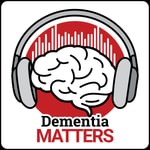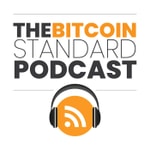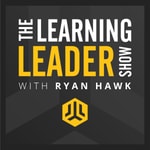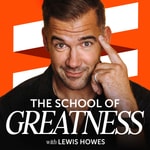Dementia Matters – Details, episodes & analysis
Podcast details
Technical and general information from the podcast's RSS feed.

Dementia Matters
Wisconsin Alzheimer‘s Disease Research Center
Frequency: 1 episode/13d. Total Eps: 100

Recent rankings
Latest chart positions across Apple Podcasts and Spotify rankings.
Apple Podcasts
🇺🇸 USA - medicine
11/07/2025#98🇨🇦 Canada - medicine
05/06/2025#92🇨🇦 Canada - medicine
04/06/2025#46🇨🇦 Canada - medicine
03/06/2025#57🇨🇦 Canada - medicine
02/06/2025#70🇨🇦 Canada - medicine
01/06/2025#38🇨🇦 Canada - medicine
31/05/2025#99🇨🇦 Canada - medicine
25/04/2025#65🇨🇦 Canada - medicine
15/03/2025#54🇫🇷 France - medicine
03/03/2025#93
Spotify
No recent rankings available
Shared links between episodes and podcasts
Links found in episode descriptions and other podcasts that share them.
See all- https://988lifeline.org/
1208 shares
- https://jamesclear.com/atomic-habits
571 shares
- https://twitter.com/WisconsinADRC
87 shares
- https://twitter.com/CGster
1 share
- https://twitter.com/ATRI_USC
1 share
RSS feed quality and score
Technical evaluation of the podcast's RSS feed quality and structure.
See allScore global : 58%
Publication history
Monthly episode publishing history over the past years.
Gut Feelings: The Links Between Gut Health and Alzheimer’s Disease
Episode 191
mercredi 28 août 2024 • Duration 33:32
An expanding field of research is looking at how the gut affects different parts of people’s health, but how does it affect brain health? Drs. Barb Bendlin and Tyler Ulland join the podcast to talk about their 2023 study, which suggests a link between gut health, aging and changes related to Alzheimer’s disease. They discuss their findings on how gut inflammation could impact brain health, as well as explain what it means to have good gut health and how food, medications, where one lives and other factors can impact the gut microbiome.
Guests: Barbara Bendlin, PhD, professor, Division of Geriatrics and Gerontology, deputy director, University of Wisconsin (UW) Center for Health Disparities Research, and Tyler Ulland, PhD, associate professor of pathology and laboratory medicine, UW School of Medicine and Public Health, leader, Ulland Lab
Show NotesLearn more about the 2024 Fall Community Conversation: The Impact of Social Connections on Brain Health and register to attend in person on our website.
Read Dr. Bendlin and Dr. Ulland’s study, “Gut inflammation associated with age and Alzheimer’s disease pathology: a human cohort study,” on the National Library of Medicine website.
Learn more about Dr. Bendlin and Dr. Uland’s study in the article, “Gut inflammation linked to aging and Alzheimer’s disease,” on the UW School of Medicine and Public Health website.
Learn more about Dr. Ulland from his profile on the Ulland lab webpage.
Learn more about Dr. Bendlin from her profile on the UW Center for Health Disparities Research website.
Connect with usFind transcripts and more at our website.
Email Dementia Matters: dementiamatters@medicine.wisc.edu
Follow us on Facebook and Twitter.
Subscribe to the Wisconsin Alzheimer’s Disease Research Center’s e-newsletter.
Enjoy Dementia Matters? Consider making a gift to the Dementia Matters fund through the UW Initiative to End Alzheimer’s. All donations go toward outreach and production.
Reviewing the Six Pillars of Brain Health
Episode 190
mardi 13 août 2024 • Duration 45:57
In this compendium episode, we review some of the best information and research that we’ve shared on the six pillars of brain health. With excerpts highlighting the importance of physical activity, diet, sleep, social engagement and more, our six guests show that there are numerous evidence-based lifestyle interventions that a person can incorporate into their daily lives to improve their brain health and delay the onset of or reduce their risk of developing Alzheimer’s disease.
Show NotesLearn more about the 2024 Fall Community Conversation: The Impact of Social Connections on Brain Health and register to attend in person on our website.
Learn more about exercise and physical activity at 2:57 or by listening to the episode, “Building the Brain: Finding the Cognitive Benefits of Physical Activity,” on our website.
Learn more about the MIND diet at 8:58 or by listening to the episode, “MIND Diet for Healthy Brain Aging,” on our website.
Learn more about the importance of sleep at 14:28 or by listening to the episode, “The Importance of Sleep for a Healthy Life,” on our website.
Learn more about mindfulness as a practice for managing stress at 21:22 or by listening to the episode, “Mindfulness: What Is It, What Are the Benefits, Where to Begin,” on our website.
Learn more about cognitive engagement at 28:10 or by listening to the episode, “Exercise Your Mind: Cognitively Stimulating Activities and Social Engagement,” on our website.
Learn more about social isolation and engagement at 34:44 or by listening to the episode, “The Impact of Social Isolation on Dementia Risk in Older Adults,” on Spotify, Apple Podcasts and on our website.
Find more information about the six pillars of brain health and other prevention strategies on our website.
Connect with usFind transcripts and more at our website.
Email Dementia Matters: dementiamatters@medicine.wisc.edu
Follow us on Facebook and Twitter.
Subscribe to the Wisconsin Alzheimer’s Disease Research Center’s e-newsletter.
Enjoy Dementia Matters? Consider making a gift to the Dementia Matters fund through the UW Initiative to End Alzheimer’s. All donations go toward outreach and production.
The Fundamentals of Neuropsychology: Breaking Down Cognition, Memory and More
Episode 181
mardi 26 mars 2024 • Duration 41:52
The brain is the most complex part of the human body, controlling thought, memory, emotion, motor skills, sensory input and all the processes that regulate our bodies. How exactly does it work, and how are clinicians able to determine whether brain changes are a result of normal aging, Alzheimer’s disease, or something else? Dr. Victoria Williams joins the podcast to explain important concepts in neuropsychology, from the difference between cognition and intelligence to how memories are made, and discuss how cognitive tests work in memory clinics.
Guest: Victoria Williams, PhD, neuropsychologist, UW Health, assistant professor, Department of Medicine, University of Wisconsin School of Medicine and Public Health
Show NotesAre you a clinician interested in receiving continuing education (CE) credits for listening to this episode? Find credit designation information, disclosures and evaluation information on our website and on the UW–Madison Interprofessional Continuing Education Partnership (ICEP) website. The accreditation for this course expires 3/25/2025. After this date, you will no longer be able to access the course or claim credit.
Learn more about the domains and structure of the brain through the National Institute of Neurological Disorders and Stroke (NINDS) website.
Learn more about Dr. Williams at her bio on the University of Wisconsin Department of Medicine website.
Connect with UsFind transcripts and more at our website.
Email Dementia Matters: dementiamatters@medicine.wisc.edu
Follow us on Facebook and Twitter.
Subscribe to the Wisconsin Alzheimer’s Disease Research Center’s e-newsletter.
Enjoy Dementia Matters? Consider making a gift to the Dementia Matters fund through the UW Initiative to End Alzheimer’s. All donations go toward outreach and production.
Long COVID and Its Effect on Cognition
Episode 180
mardi 12 mars 2024 • Duration 28:53
Since the COVID-19 pandemic was declared by the World Health Organization (WHO) in 2020, there have been many concerns about how cases of COVID-19 and Long COVID or Post-COVID Conditions (PCC) affect not just a person’s physical health, but their cognition as well. In this episode, Dr. Jim Jackson talks about his path into critical illness research and his dedicated focus on unraveling the impact of Long COVID on cognition. Throughout the discussion, he talks about the parallels between Long COVID and other chronic illnesses, the effects of Long COVID across different demographics, the concurrent challenges faced by older adults and more.
Guest: James “Jim” Jackson, PsyD, director of long-term outcomes, Critical Illness, Brain Dysfunction, and Survivorship (CIBS) Center, research associate professor of medicine, director of behavioral health, ICU Recovery Center, Vanderbilt University Medical Center
Show NotesLearn more about Dr. Jackson’s book, Clearing the Fog: From Surviving to Thriving with Long Covid―A Practical Guide, on Goodreads.
Listen to Dr. Jackson’s interview on NPR’s Fresh Air podcast, “Millions of people have long COVID brain fog — and there's a shortage of answers.”
Learn more about Dr. Jackson at his bio on the Vanderbilt University website.
Learn more about Long COVID or Post-COVID Conditions on the Centers for Disease Control and Prevention (CDC) website.
Connect with UsFind transcripts and more at our website.
Email Dementia Matters: dementiamatters@medicine.wisc.edu
Follow us on Facebook and Twitter.
Subscribe to the Wisconsin Alzheimer’s Disease Research Center’s e-newsletter.
Enjoy Dementia Matters? Consider making a gift to the Dementia Matters fund through the UW Initiative to End Alzheimer’s. All donations go toward outreach and production.
Listen Up! The Connections Between Hearing Loss, Hearing Interventions and Cognitive Decline
Episode 179
mercredi 28 février 2024 • Duration 38:52
Hearing loss affects roughly 15.5% of Americans 20 years and older. While the majority of these individuals experience mild hearing loss, the prevalence and severity of hearing loss increases with age. What does this sensory change mean for dementia risk, and can this risk be prevented through interventions like hearing aids? Dr. Frank Lin joins the podcast to discuss the relationship between hearing loss and dementia and share findings from the Aging and Cognitive Health Evaluation in Elders, or ACHIEVE, study.
Guest: Frank Lin, MD, PhD, director, Cochlear Center for Hearing and Public Health, Professor of Otolaryngology, Medicine, Mental Health, and Epidemiology, Johns Hopkins University
Show NotesRead more about Dr. Lin’s study, “Hearing intervention versus health education control to reduce cognitive decline in older adults with hearing loss in the USA (ACHIEVE): a multicentre, randomised controlled trial,” in The Lancet.
Learn more about the Atherosclerosis Risk in Communities (ARIC) study, mentioned at 20:01, through the National Heart, Lung, and Blood Institute and Johns Hopkins Bloomberg School of Public Health’s websites.
Read more about U.S. regulations surrounding over-the-counter hearing aids, mentioned at 34:00, in “‘A New Frontier’ for Hearing Aids,” by The New York Times.
Learn more about Dr. Lin at his bio on the Johns Hopkins Bloomberg School of Public Health website.
Learn more about the ACHIEVE study on their webpage.
Connect with usFind transcripts and more at our website.
Email Dementia Matters: dementiamatters@medicine.wisc.edu
Follow us on Facebook and Twitter.
Subscribe to the Wisconsin Alzheimer’s Disease Research Center’s e-newsletter.
Enjoy Dementia Matters? Consider making a gift to the Dementia Matters fund through the UW Initiative to End Alzheimer’s. All donations go toward outreach and production.
From Caregiver to Research Participant: How One Woman’s Experience as a Dementia Caregiver Drew Her to Alzheimer’s Research
Episode 178
mardi 13 février 2024 • Duration 35:20
Caring for a loved one with cognitive decline can be challenging. While it is a labor of love, burnout is all but inevitable. In this episode kicking off our Voices of Research Participants series with co-host Sarah Walter, Cynthia Sierra touches on her personal experience with caregiver burnout as both a caregiver and research study partner for her mother, who has early-onset Alzheimer’s disease. She also shares her unique perspective on Alzheimer’s disease research as someone who started as a family caregiver.
Guest: Cynthia Sierra, MS, LPC, senior project manager, UT Health San Antonio
Co-host: Sarah Walter, MSc, program administrator, Alzheimer’s Clinical Trials Consortium (ACTC) and Alzheimer’s Therapeutic Research Institute (ATRI)
Show NotesLearn more about Cynthia Sierra’s research at her ResearchGate profile.
Learn more about Sarah Walter at her bio on the Alzheimer’s Clinical Trials Consortium website.
Find resources for people with dementia and their care partners on our website.
Connect with UsFind transcripts and more at our website.
Email Dementia Matters: dementiamatters@medicine.wisc.edu
Follow us on Facebook and Twitter.
Subscribe to the Wisconsin Alzheimer’s Disease Research Center’s e-newsletter.
Enjoy Dementia Matters? Consider making a gift to the Dementia Matters fund through the UW Initiative to End Alzheimer’s. All donations go toward outreach and production.
Looking at Lecanemab’s Eligibility Guidelines and Prescription Process
Episode 177
mardi 23 janvier 2024 • Duration 35:57
In the past few years, new therapies shown to slow the progression of Alzheimer's disease in people in the early stages of the disease have been making their way through the U.S. Food and Drug Administration’s (FDA) approval process. With these treatments now available, there are a growing number of questions surrounding who is eligible to take these medications and what processes are needed to ensure they are prescribed safely and effectively. Host Dr. Nathaniel Chin examines the guidelines for geriatricians and clinicians prescribing lecanemab and breaks down the eligibility requirements necessary to receive this treatment.
Show NotesRead Eisai/Biogen’s “Prescribing Information” for Leqembi online.
Read “Lecanemab: Appropriate Use Recommendations” on the National Library of Medicine website.
Read the U.S. Department of Veterans Affairs’ (VA) guidelines for prescribing lecanemab, “Lecanemab-irmb (LEQEMBI) Criteria for Use August 2023,'' online.
Listen to previous Dementia Matters episodes on lecanemab, including “Putting Lecanemab into Practice: A Clinician’s Perspective on the New Alzheimer’s Treatment,” “A Closer Look at the Lecanemab Clinical Trials,” and “Introducing Lecanemab, The Latest Alzheimer’s Disease Drug to Receive FDA Accelerated Approval,” on our website and all major podcast platforms.
Connect with UsFind transcripts and more at our website.
Email Dementia Matters: dementiamatters@medicine.wisc.edu
Follow us on Facebook and Twitter.
Subscribe to the Wisconsin Alzheimer’s Disease Research Center’s e-newsletter.
Enjoy Dementia Matters? Consider making a gift to the Dementia Matters fund through the UW Initiative to End Alzheimer’s. All donations go toward outreach and production.
Do Non-Medicinal Interventions Reduce Dementia Risk? Studies are Inconclusive, Here’s Why
Episode 176
mardi 9 janvier 2024 • Duration 34:34
In 2017, the National Academies of Sciences, Engineering, and Medicine published a report showing promising but inconclusive evidence suggesting that interventions like cognitive training, blood pressure control and increased physical activity reduce a person’s risk for dementia, but what does the research show now? Dr. Luke Stoeckel from the National Institute on Aging (NIA) joins the podcast to share where the research on lifestyle interventions is at, why studies on these interventions are difficult to complete and more.
Guest: Luke Stoeckel, PhD, program director, Mechanistic and Translational Decision Science Program, Division of Behavioral and Social Research (DBSR), NIA
Show NotesLearn about the National Academies of Sciences, Engineering, and Medicine on their website.
Read the 2017 National Academies’ report, “Preventing Cognitive Decline and Dementia,” for free on their website.
Learn about the National Academies’ Research Priorities for Preventing and Treating Alzheimer’s Disease and Related Dementias and find upcoming workshops on their website.
Find information on the 2021 National Academies workshop mentioned by Dr. Chin at 1:36 on the National Academies website.
Learn more about Dr. Stoeckel in his bio on the National Institute on Aging website.
Connect with UsFind transcripts and more at our website.
Email Dementia Matters: dementiamatters@medicine.wisc.edu
Follow us on Facebook and Twitter.
Subscribe to the Wisconsin Alzheimer’s Disease Research Center’s e-newsletter.
Enjoy Dementia Matters? Consider making a gift to the Dementia Matters fund through the UW Initiative to End Alzheimer’s. All donations go toward outreach and production.
The Road to Hope: Philanthropy’s Impact on Alzheimer’s Research
Episode 175
mardi 26 décembre 2023 • Duration 24:53
In this year-end episode of Dementia Matters, we explore the vital role of philanthropy in advancing Alzheimer's disease research and care. Mr. Dave Adam serves on the board of visitors for the UW Initiative to End Alzheimer’s (IEA) and is an avid long-distance biker. In this episode, Adam shares his journey of combining his passions for biking and Alzheimer's advocacy. With personal experiences touched by dementia, Dave discusses how he used his solo biking expeditions across Canada and Australia to raise awareness and funds to support prevention and treatment strategies, improve care and benefit researchers at the University of Wisconsin–Madison seeking a cure for Alzheimer’s disease.
Guest: Dave Adam, board of visitors, UW Initiative to End Alzheimer’s (IEA)
Show NotesDo you like what you are hearing and learning? Make an impact when you make a tax-deductible gift to the Dementia Matters fund of the UW Initiative to End Alzheimer’s. All donations go toward outreach and production.
Learn more about UW Initiative to End Alzheimer’s (IEA) on its website.
Read more about Mr. Adam’s travel and biking stories on his website.
Learn more about Mr. Adam on the UW Initiative to End Alzheimer’s website.
Connect with usFind transcripts and more at our website.
Email Dementia Matters: dementiamatters@medicine.wisc.edu
Follow us on Facebook and Twitter.
Subscribe to the Wisconsin Alzheimer’s Disease Research Center’s e-newsletter.
Could Green Tea Hold the Key to New Alzheimer’s Treatments?
Episode 174
mercredi 13 décembre 2023 • Duration 21:49
Dr. Paul Seidler joins the podcast to discuss his recent study looking at the connection between molecules in green tea and tau proteins. He also discusses the impact those molecules have on preventing cognitive decline and how these findings could lead to new strategies for treating Alzheimer’s disease.
Guest: Paul Seidler, PhD, assistant professor, University of Southern California Mann School of Pharmacy and Pharmaceutical Sciences
Show NotesRead more about Dr. Seidler’s study, “Structure-based discovery of small molecules that disaggregate Alzheimer's disease tissue derived tau fibrils in vitro,” on the National Library of Medicine website.
Read the article on the research from the National Institute on Aging (NIA), “Study of green tea and other molecules uncovers new therapeutic strategy for Alzheimer’s,” on their website.
Learn more about Dr. Seidler on the University of Southern California’s website.
Connect with usFind transcripts and more at our website.
Email Dementia Matters: dementiamatters@medicine.wisc.edu
Follow us on Facebook and Twitter.
Subscribe to the Wisconsin Alzheimer’s Disease Research Center’s e-newsletter.









